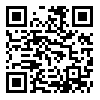BibTeX | RIS | EndNote | Medlars | ProCite | Reference Manager | RefWorks
Send citation to:
URL: http://jeche.ir/article-1-304-en.html
Background and Aim: Play is an essential aspect of childhood, contributing significantly to children's cognitive and social development. The present study aimed to examine the effect of creative games on the development of social and problem-solving skills in preschool children in Urmia, district 2, Iran. Research Methods: This study employed a semi-experimental design with a pretest-posttest structure and a control group. The statistical population included all preschoolers in Urmia's district 2 during the 2024-2025 academic year (n=540 children). From this population, a multi-stage cluster random sample of 40 preschoolers was drawn and randomly assigned to experimental and control groups. Measurement tools included the "Savaari and Uraki Focus Questionnaire (2015)", the Wechsler Intelligence Scale (1939), and the Kassidy and Long Problem-Solving Questionnaire (Problem-Solving Styles Questionnaire) (1996). The intervention program consisted of 12 sessions of 45 minutes of creative play, conducted over six weeks. The collected data were analyzed using independent t-test and ANCOVA. Results: The study findings showed that creative games had a statistically significant effect on improving five key components: social skills, problem solving, creativity, self-confidence, and responsibility in preschoolers. Post-test scores of the experimental group on all components were significantly higher than those of the control group. Participants engaged in creative activities performed better than the control group in these components. Discussions: Based on the findings, creative games play a significant role in strengthening social and problem-solving skills and can be used as an effective method in the educational process and personal development of preschool children to ensure healthy and balanced growth.
Received: 2024/12/8 | Accepted: 2025/10/6 | Published: 2025/09/20
| Rights and permissions | |
 |
This work is licensed under a Creative Commons Attribution-NonCommercial 4.0 International License. |




